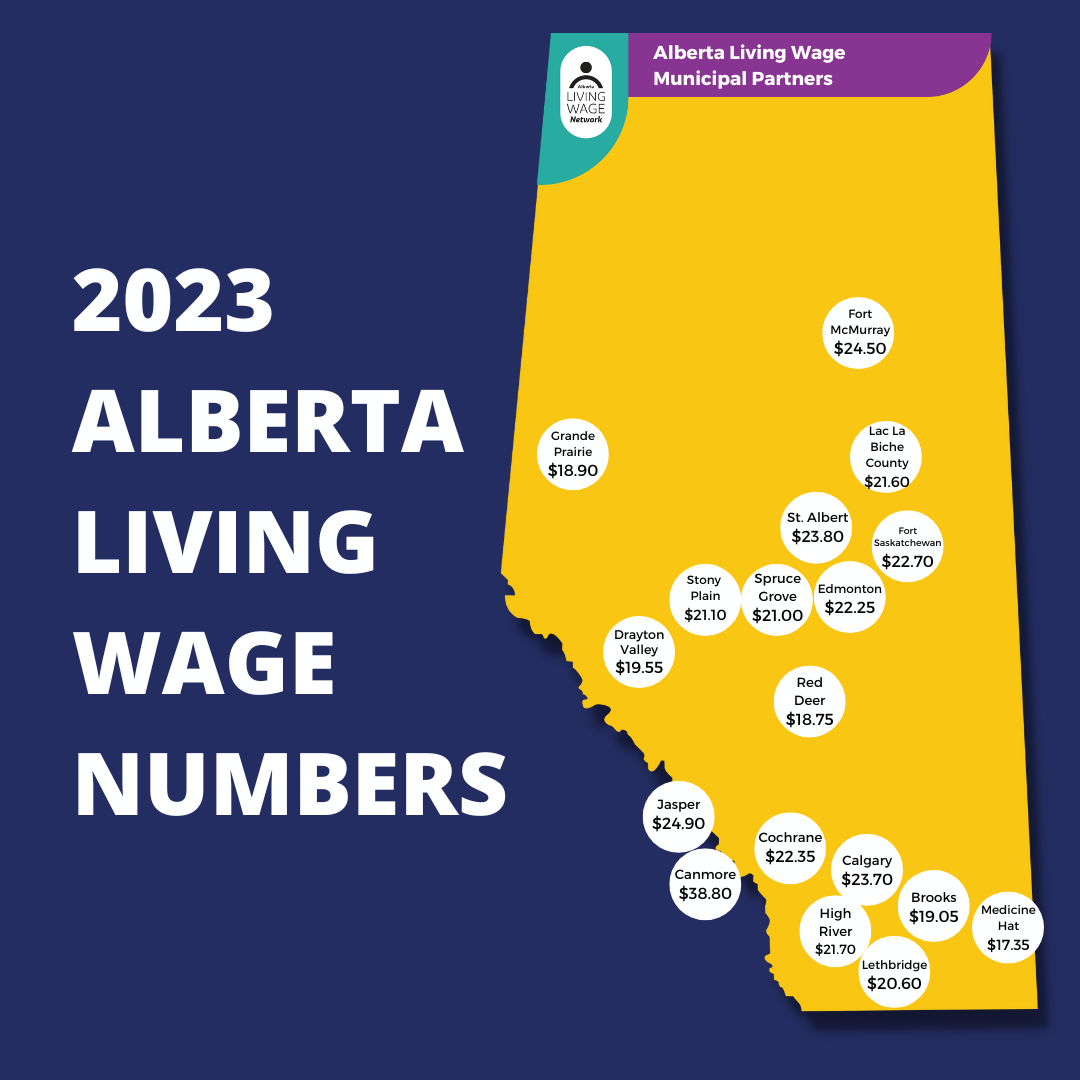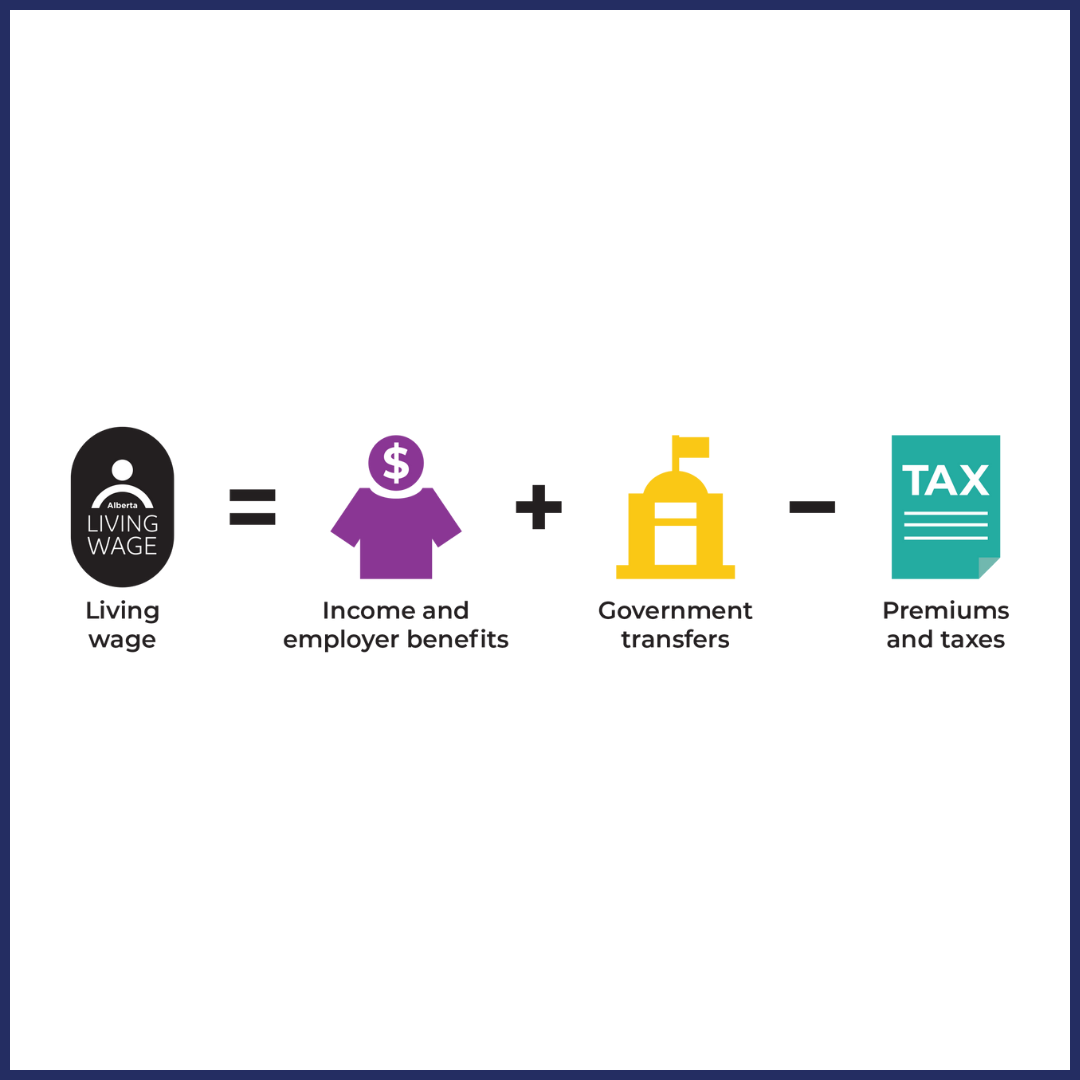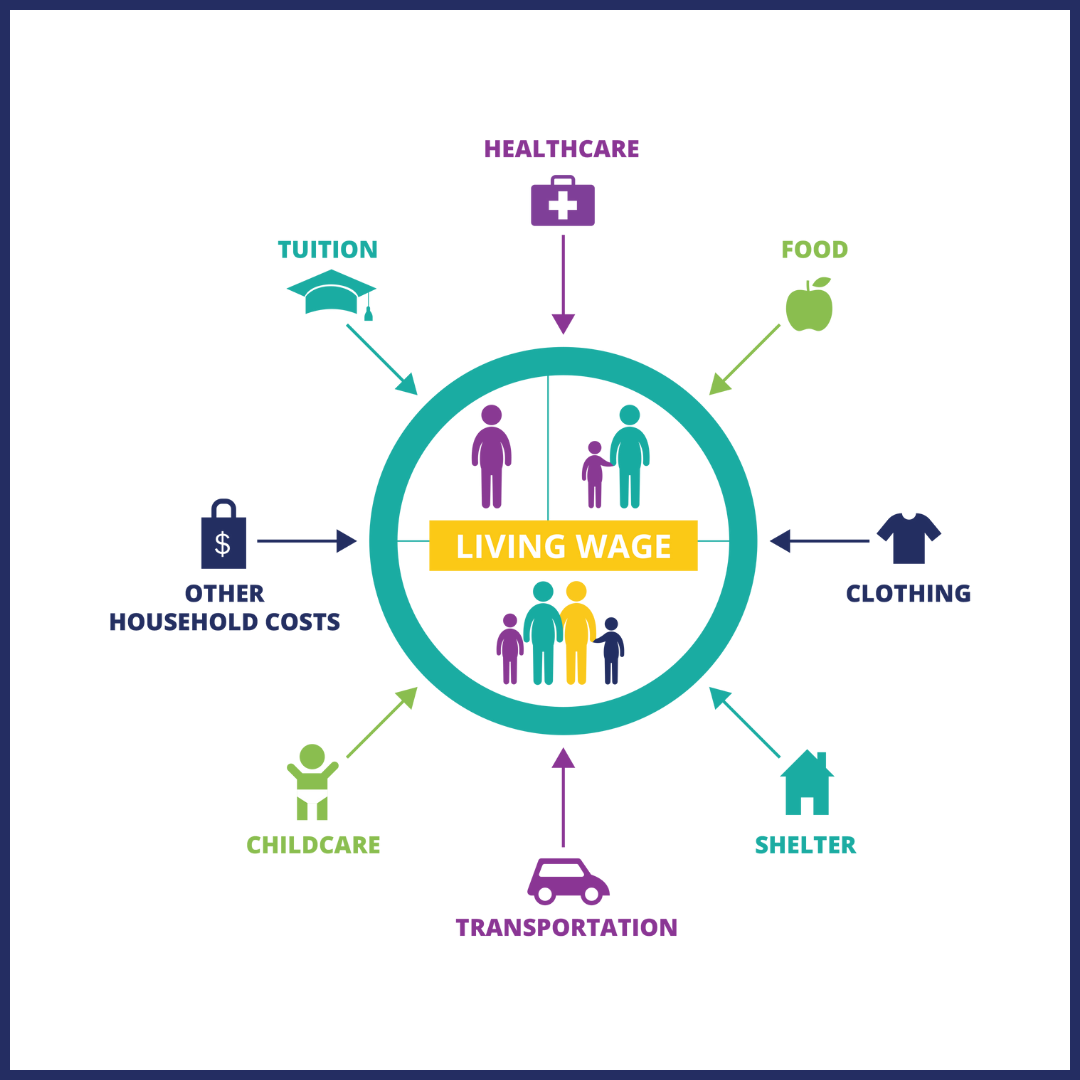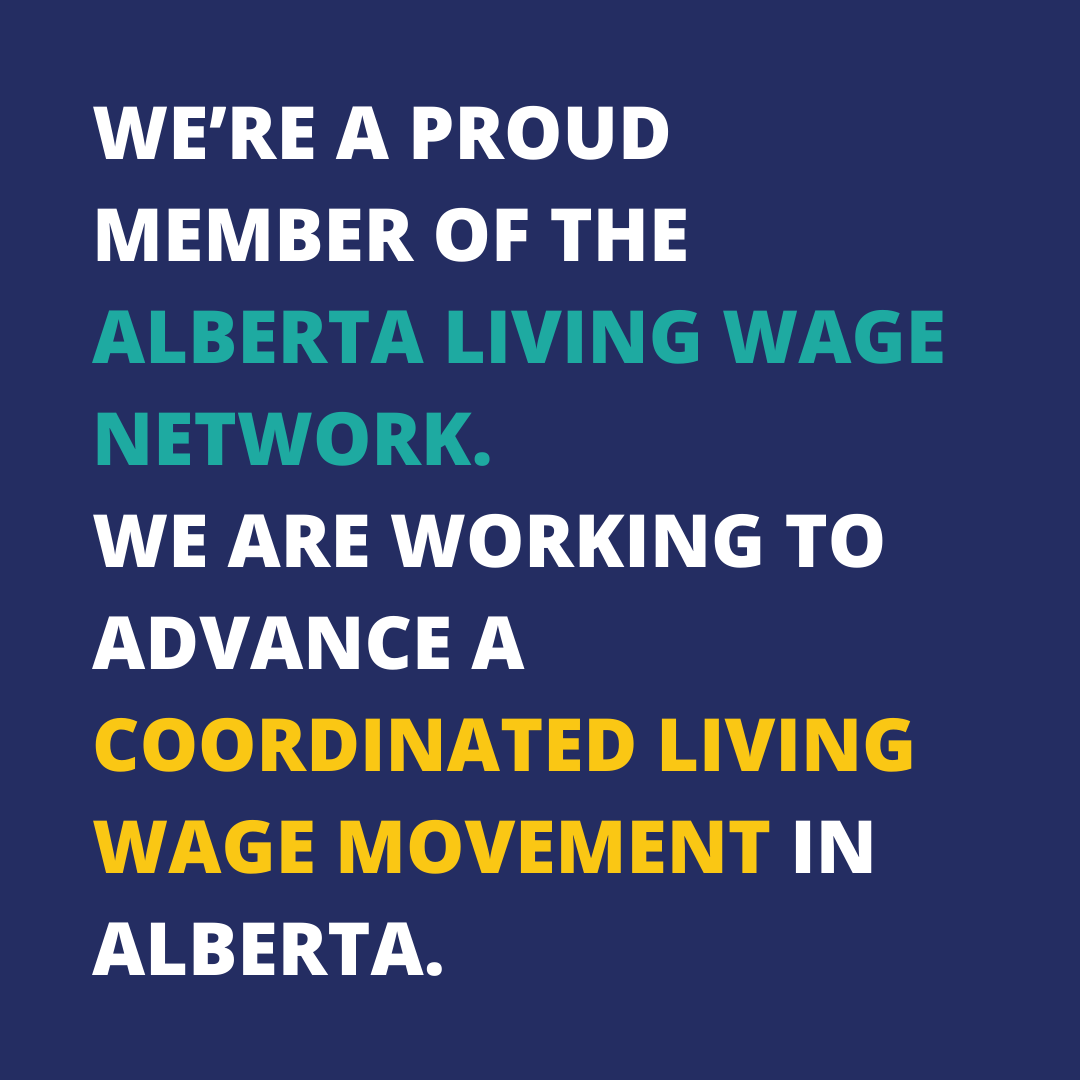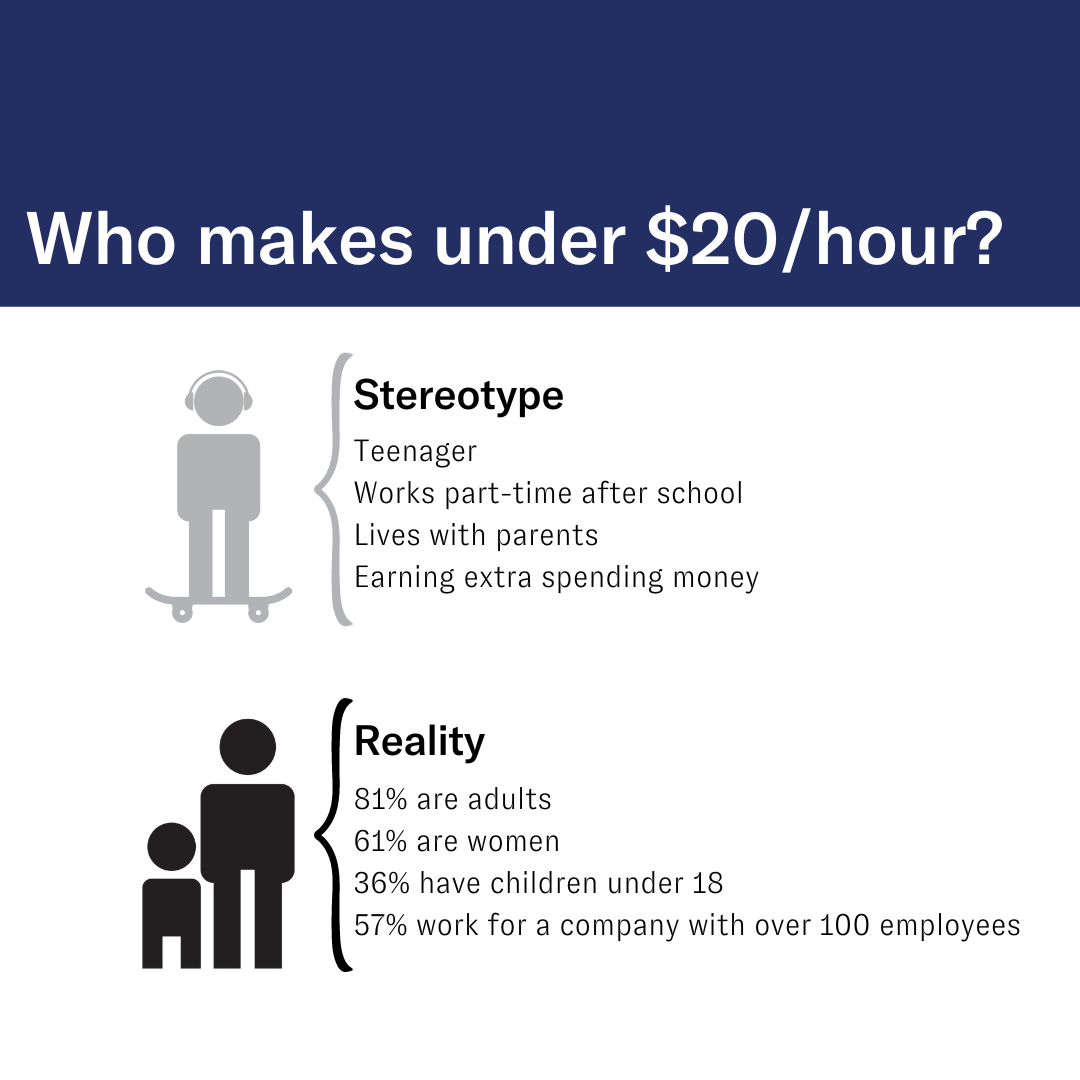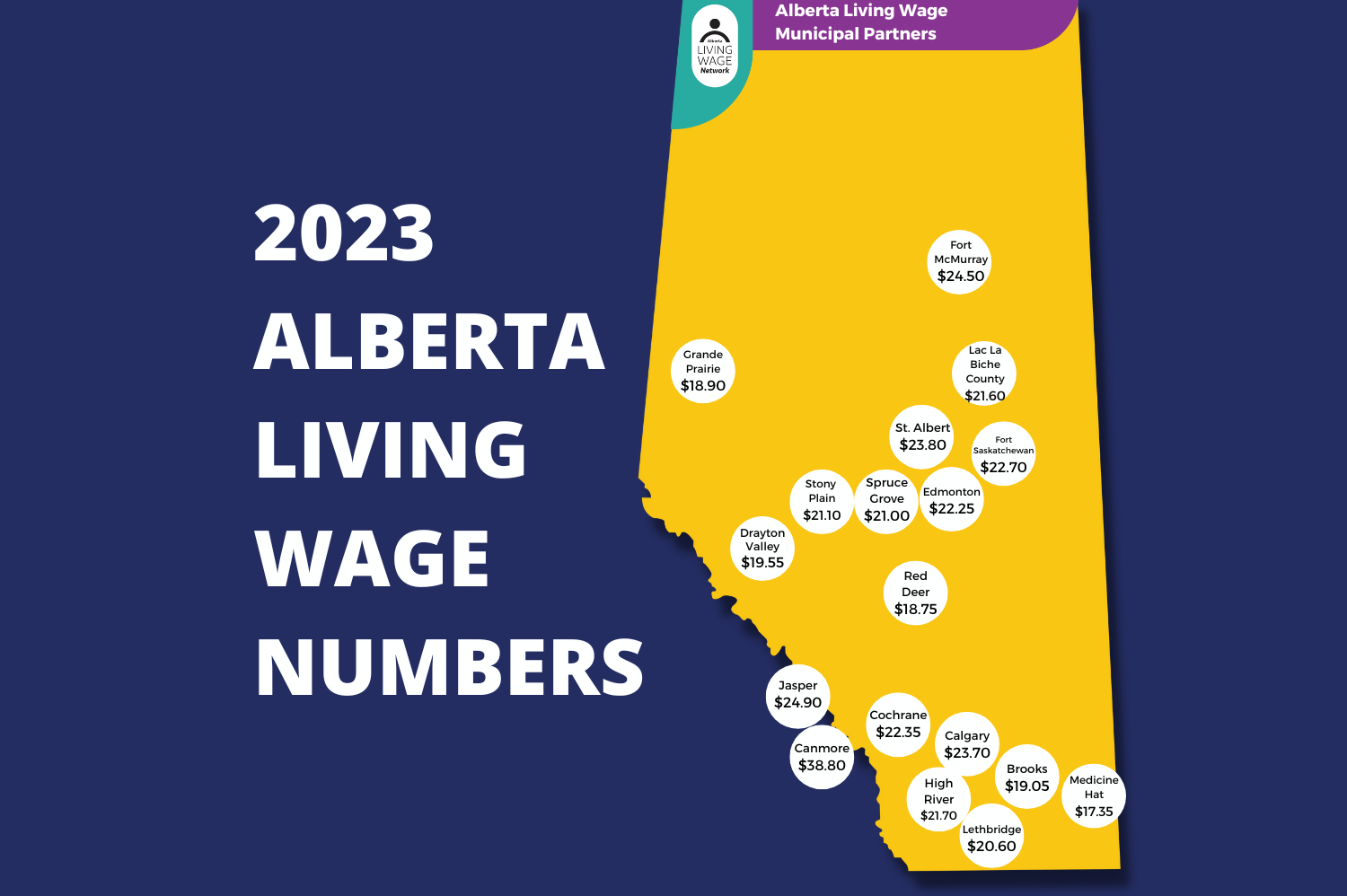Today, Edmonton Social Planning Council (ESPC) in collaboration with the Alberta Living Wage Network (ALWN or “the Network”) has released a new living wage of $22.25 per hour for Edmonton. The living wage has increased by $0.85 over last year even after federal and provincial government affordability measures were incorporated into the calculation.
The living wage is defined as the hourly wage a worker needs to earn to cover their basic expenses and have a modest standard of living once government transfers have been added and taxes have been subtracted. The calculation is based on the income needs of three household types: a two-parent family with two young children; a lone-parent family with one child; and a single individual. It assumes that each adult is working full-time hours and includes savings for unexpected costs, continuing education, child care, and a small amount which allows people to participate in the community.
Quotes:
“A livable income is one of the most important anti-poverty measures available to us in our policy toolkit. Providing timely living wage calculations is an indispensable service the Alberta Living Wage Network offers and helps to inform our advocacy efforts. We applaud the hard work of the Network so our communities are informed and we are able to take action.”
Erick Ambtman, Executive Director, EndPovertyEdmonton
“Despite increasing costs on just about everything – particularly shelter – we did see some things that put downward pressure on the living wages. Government affordability measures and the Canada Dental Benefit have helped families. What’s missing in Alberta is any real action on increasing minimum wage despite every single other province making increases in 2023.”
Ryan Lacanilao, Coordinator, Alberta Living Wage Network
“Affordability has been top of mind for many households in recent years. Every year that our living wage numbers increase means that families reliant on minimum wage or low-wage jobs will have more challenges being able to afford the basics. Affordability measures taken by the federal and provincial governments such as the Grocery Rebate and the affordability payments brought needed relief to many. However, long-term and robust measures are needed to make a lasting difference.”
Susan Morrissey, Executive Director, Edmonton Social Planning Council
“Meeting our basic needs is essential for all community members and being paid a living wage is a crucial way of making sure every household can provide for their families. Every person deserves to live with dignity and be able to participate in their community so that they can thrive, not just survive. Livable incomes help strengthen the health of our communities."
Gary Savard, Greater Edmonton Alliance for the Common Good
“Women and newcomers are among some of the most likely to have incomes under the living wage rate. By bringing awareness to what a living wage is within our communities and committing to providing a living wage, we are empowering our most vulnerable and marginalized populations.”
Denise Kirk, GBV Resource Collective
- Learn more about Edmonton’s living wage calculation.
- 16 municipalities in Alberta released their living wages today. Learn more about how Edmonton’s living wage compares.
- View ALWN’s common questions and answers about living wages and how employers can get certified.
About the Alberta Living Wage Network
The Alberta Living Wage Network is a network of community organizations and municipalities with the goal of advancing a coordinated living wage movement in Alberta. The network assists communities in their annual living wage calculation and has certified more than 100 living wage employers in the province. For more information visit livingwagealberta.ca and follow @livingwageab on Facebook, Twitter or Instagram.
